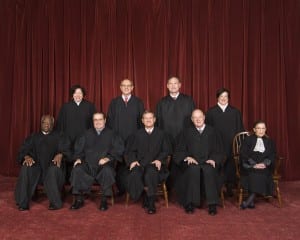To learn who rules over you, simply find out who you are not allowed to criticize. – Voltaire, 1694-1778 –
By David Underhill –
MOBILE, Ala. – Newly captured Africans bound for slavery in the Americas often didn’t arrive directly. They stopped in the Caribbean islands for “seasoning.” There they lost their culture, language, religion. Replacements more serviceable to the owners of these people were imposed.
The process was slow and imperfect. Even now descendants of those captives retain shreds of the ancestral ways. But they had to learn enough of the masters’ language to understand and follow orders. They had to become acquainted with the tools and tasks of their forced labor.
And they had to learn things less practical but still essential to the success of the seasoning. This included the masters’ religion.
History doesn’t exactly repeat itself but it does, like music, do variations on recurring themes. One of these is the habit of conquerors and rulers to draft their subjects into their religion. The Spanish conquistadors kept priests beside them to bless their land thefts in the western hemisphere and to convert the residents, who remain Christianized. Islam accompanied Arab slave traders into north and east Africa, and the religion remains there long after that commerce ended.
Middle eastern monotheism marched into northern Europe with the Roman legions. The heathens who lived there realized it would please their conqueror to adopt his religion. And so, like the defeated and enslaved elsewhere throughout history, they shucked most of their old belief and put on the replacement offered by their new master.
This pleases the master because it announces submission. Whether forced or more gently induced, participation in the rituals of the new faith blunts the ability to criticize whoever brought that faith. The barrier against criticism becomes stronger when the converts cease feeling coerced and begin being earnest believers.
Holy Obedience
Then the opening quote applies. It is attributed to Voltaire, perhaps erroneously. But whoever coined it, the idea it expresses is valid. Subjects will not object to a god they are worshiping. So if a conqueror or a slave owner can get them to bow down to his god, they will not feel at liberty to criticize either his god or him. He becomes their ruler.
The lords of medieval Europe understood this. So did the priests and bishops who were their partners in ruling those feudal fiefdoms. Together they fostered a form of religion that stifled criticism from the peasants and kept them largely obedient for centuries.
The rare challenges to this arrangement were more likely to come from above than below. Thirteenth century English king John got uppity. He tried to behave like an actual sovereign in command of his realm. The barons left their estates long enough to assemble for drafting a reminder to the king that his role was mostly ceremonial.
History books for school children rank this document, the Magna Carta of 1215, among the founding scriptures of the American system, like the Declaration of Independence, the Constitution, the Gettysburg Address. It sharply restricted the powers of the monarch and placed them instead in the hands of the barons.
This led toward broader claims for a share of the powers. First the lesser lords beneath the barons, then the merchant class, then small farmers owning just a few acres, then all white males, then…….. When Barack Obama first ran for president the lingering law professor within him cited this expanding inclusion as fulfillment of the “more perfect union” envisioned in the preamble of the Constitution.
Last week’s supreme court decision in the Hobby Lobby case reverses this process. Most of the ongoing furor over that ruling has involved the reproductive rights of women and the deference religious preferences should receive in clashes with civil law. But the case deserves as much attention for its reversion toward the discarded practices of the feudal centuries.
The owners of those ancient estates were mini monarchs. Within his (occasionally her) borders the lord could rule as a despot, more or less benevolent. His word was the law of that realm. His religion was its faith.
The rise of urban industrial nations turned these estates into touristy theme parks and nostalgic TV productions. But a successor has survived in corporate form.
Squinting Through History Lens
It takes some squinting to see these entities as current versions of a medieval feudal fiefdom because they don’t have a fixed, compact location on the landscape. Their parts are splayed out across the globe, and their administrative operations may be nowhere near their manufacturing, warehouses or other physical facilities.
These include loss of livelihood, just as a feudal lord could exile unruly serfs from his estate or impose other forms of punishment. They can also include loss of health care when this is attached to employment, as it frequently is now, especially in America. That means not only loss of contraceptive services—the issue in the Hobby Lobby case—but loss of health care generally.
With the paycheck gone and access to the doctor gone, payments on the car note will lag, so the vehicle too will be gone. Then the house. And the family.
This threatens to become hell on earth. To avoid that it’s wise to keep the boss happy, and adopting his religion will usually please him, as history instructs.
Corporate Missionaries
During the wrangle over the court case, defenders of Hobby Lobby have said the company resists paying for kinds of contraception its owners deem abortion. This isn’t an attack on women’s rights, they insist, it’s adherence to the owners’ Christian principles, which guide all their decisions about the company.
Thus the stores close on Sundays so the workers can go to church. And the company contributes generously to charities with a Christian outlook. These activities are presented as evidence of the owners’ virtues and sincerity. They could also be seen as evidence of the owners inducting the employees into the bosses’ religion.
Workers who don’t want to attend church on Sunday are nevertheless following the Biblical instruction to treat every seventh day as one of rest from labor. And workers who don’t adhere to the Christian messages often accompanying the distribution of Christian charity are nevertheless helping deliver those messages by laboring to generate the surplus income allowing the store owners to fund the charities.
Thus the owners are compelling their employees to practice Christianity (the owners’ version at least) whether the employees believe it or not. Perhaps actual belief will follow along behind practice, perhaps not. But participating in the rituals of religion constitutes a large portion of what commonly passes for religion.
The number of genuine believing Muslims may not have increased in the Iraqi city of Mosul since the jihadi fundamentalists recently captured it. But the number of practicing Muslims certainly has increased. That satisfies the new rulers, just as it satisfied lords of the manor in the Middle Ages to see their serfs going through the motions of participation in the official religion, just as it satisfies the grandees of Hobby Lobby to see their workers partaking of the company religion.
Aside from compromises which might soothe the dispute over specific methods of contraception available to female employees of Hobby Lobby, the supreme court has set a legal precedent. It says the religion of a company’s owners may shape the operations of that company, and the employees must adapt themselves to this regardless of any preferences of their own to the contrary.
Magna Carta Rerun
This places the court (by a precarious but defiant majority of five justices out of nine) in roughly the position of the Magna Carta barons of 1215. The justices assert, like the barons before them, that corporate owners now, like feudal lords before them, may steer the religious practices of their subjects. With this comes predominance also over the livelihood of their subjects and over everything dependent on the income from this livelihood.
This power, said the court, belongs to the holders of private properties. That arrangement is neither a democracy nor even a republic. It is a frank reversion toward the values and practices of medieval feudalism. And by further decisions delivered shortly after the Hobby Lobby one, the court displayed signs of moving further in that retro direction.
The Hobby Lobby decision is causing seizures over the threat it poses to women’s rights to control their own bodies. Except for owners who operate at the pinnacles of corporate power, this decision also poses a threat to everybody’s rights to control their own lives. That deserves attention too.
Unless you yearn for return to the Middle Ages.

















David Underhill always comes up with a fresh take on old ideas and situations. Indeed, getting subject people to accept the gods of their overlords makes control so much easier. As a progressive Christian belonging to a group trying to reclaim the essence of Christ’s message, I am dismayed by the utter transformation of Christianity over the centuries from a simple application of love for others to a doctrinaire system of rules and prohibitions with dire consequences for any who dare to entertain notions of personal and/or political freedom.